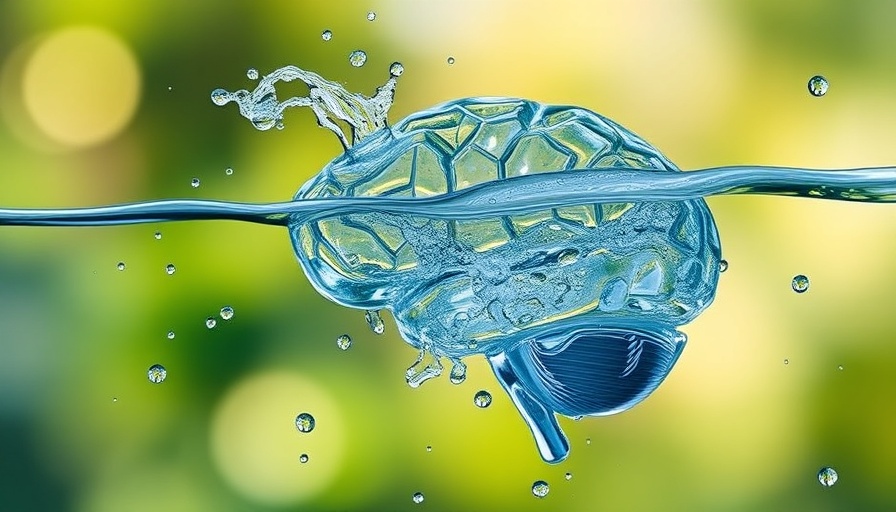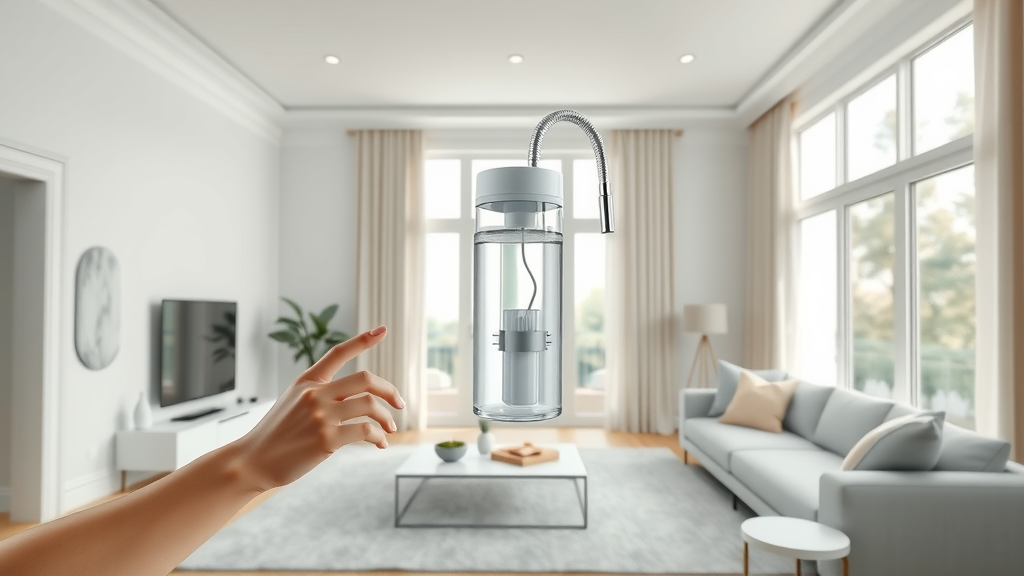
The Untold Impact of Hydration on Cognitive Abilities
In our fast-paced modern lives, hydration often falls to the wayside, but understanding its critical role in cognitive performance is essential. Did you know that even a minor dip in hydration can significantly affect your mental clarity and decision-making capabilities? Research shows that drinking less than the optimal amount of water can impair brain functions such as memory, concentration, and mood, leading to decreased productivity.
How Dehydration Impairs Mental Performance
Your brain is composed of approximately 75% water, making it highly sensitive to changes in hydration levels. Just a 1-2% reduction in body weight from dehydration can lead to various cognitive issues. Effects of mild dehydration include:
Reduced ability to recall short-term memory.
Challenges in focusing on complex tasks.
Decreased alertness and mental sharpness.
Slower reaction times.
Heightened feelings of anxiety and mental fatigue.
Deteriorated decision-making capabilities.
For instance, studies demonstrate that individuals who are mildly dehydrated performed as poorly in driving assessments as those with a blood alcohol content of 0.08%. Keeping hydrated isn't just a health tip; it's a necessity for mental performance.
Recognizing the Signs of Dehydration
How can you tell if dehydration is affecting your brain? Be on the lookout for these common signs:
Mental fog or trouble concentrating.
Persistent headaches, especially in the afternoons.
Difficulty making simple choices.
A sense of unusual fatigue, despite adequate rest.
Mood swings or irritability.
The Science Behind Hydration Needs
While you might have heard the general rule of drinking eight glasses of water a day, individual hydration needs can vary based on body weight, physical activity, and even climate. A simple equation is to drink half your body weight in ounces. For a person weighing 160 pounds, this translates to approximately 80 ounces (about 2.3 liters) of water daily. Moreover, factors such as exercise, high heat, or consuming alcohol and caffeine necessitate increased water intake.
The Importance of Electrolytes
It’s not just water that plays a role in keeping your brain functioning optimally—electrolytes are equally vital. Sodium, potassium, and magnesium help with nerve function and brain processes. Utilizing a hydration solution that includes electrolytes, like Hydrant, can enhance cognitive functions during strenuous activities, hot conditions, or extended periods of concentration.
Effective Strategies to Boost Hydration
If you're looking to improve your cognitive function, consider implementing these five hydration strategies:
Morning Hydration: Kickstart your day by drinking a glass of water upon waking. For added benefits, mix in a hydration-enhancing product like Hydrant.
Create Triggers: Link your water intake to daily activities, such as drinking before meals or at the top of every hour.
Visual Reminders: Keep a water bottle within sight on your desk; set hourly reminders to drink.
Track Your Consumption: Utilize an app or a marked bottle to keep count of your water intake.
Incorporate Electrolytes: Particularly useful during mental tasks or workouts, adding electrolytes can enhance hydration efficiency.
Conclusion: Prioritize Your Hydration for Optimal Brain Performance
Your cognitive capabilities are closely linked to your hydration levels. By making a conscious effort to hydrate, you nourish not just your body but also your mind, ensuring peak performance in everyday tasks. Start your hydration journey today—after all, a well-hydrated brain can lead to better focus, improved mood, and superior decision-making. Remember, improving your hydration habits can have a profound impact on your life.
 Add Row
Add Row  Add
Add 




Write A Comment